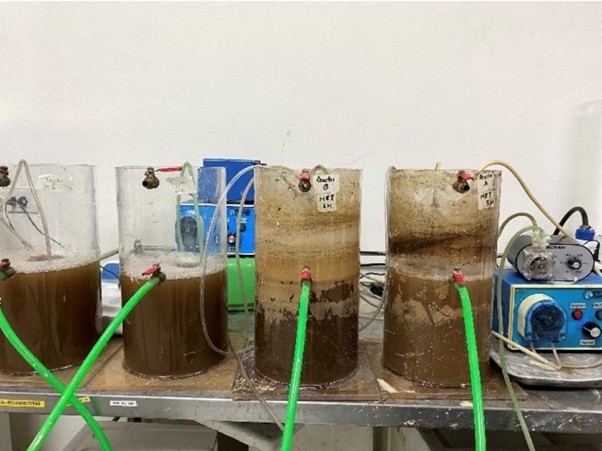Application of Bacillus subtilis to faecal sludge treatment (Thailand)

Unmanaged faecal sludge is either stored without treatment or dumped openly which percolates through the ground contaminating our water sources and spreading excreta-based pathogens in the environment, posing significant environmental and public health risks. There is an increasing urgency to develop sustainable sanitation solutions that are cost-effective and environmentally compatible. This study evaluated the biodegradation of faecal sludge by inoculating Bacillus spp. in aerated continuous-flow reactor (CFR) and comparing the treatment performance with control experiment without the inoculum by measuring tCOD, sCOD, TDS, TSS, and NH4-N. The COD was removed by 70% more than the control experiment. Solids removal was about 45% at 3 hours HRT and ammonium nitrogen was rapidly removed between 6-12 hours HRT. These results suggest that a good treatment efficiency can be achieved even in shorter retention times when inoculated with Bacillus spp. The biokinetic coefficients for COD removal revealed effectiveness with the values for kd and R2 at 0.23 and 0.87, respectively. The modified Stover-Kincannon model yielded Umax, KB, and R2 values as 0.25, 0.583, and 0.9972 respectively, signifying a strong model fit. Similarly, the kinetic models for TSS, TDS, and NH4-N also indicated a fair to strong correlation coefficients with R2values ranging 0.71-0.81. This study provides valuable insights on optimizing aerated biological treatment processes, promoting a nature-based solution for sustainable sanitation.

